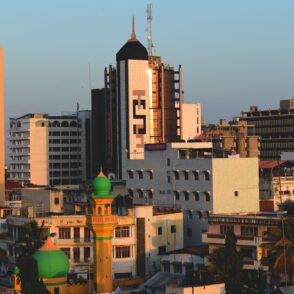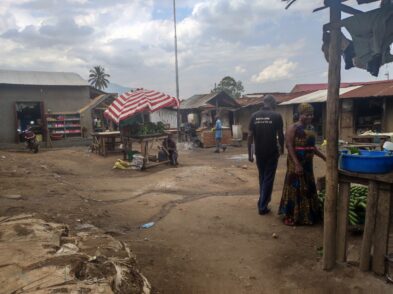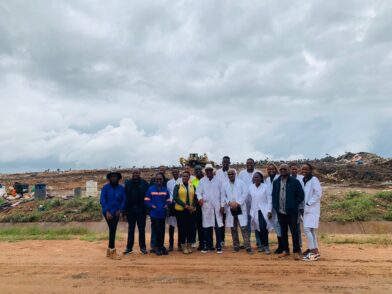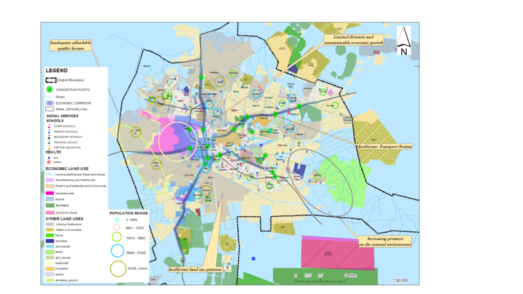
When Covid-19 hit Africa, the levels of fear about the risks that communities faced were high. Additionally, the provision of basic services to communities by the local authorities within their mandate, particularly in Lusaka was hampered partly due to increased operational costs and the quick spread of the disease. This, coupled with the poor access […]
Read More… from Building Preparedness and Resilience to Covid-19 Through the EPIC Model in Lusaka

Many African cities are currently struggling to deal with issues such as resource scarcity, waste management, and environmental sustainability, and eThekwini Municipality, more commonly known as Durban, in South Africa is no different. The population of Durban in the province of KwaZulu-Natal is growing rapidly. Unfortunately, the city is not built for this large population […]
Read More… from Creating Environmentally Sustainable Solutions to Waste Management, Natural Disasters, and Invasive Species Outbreaks Through EPIC Partnerships in Durban

The city of Harare, Zimbabwe has experienced a steady deterioration of environmental conditions. The city’s water has become contaminated with organic pollutants leading to higher nitrate and phosphate levels causing fish deaths. The situation seems to be made worse by water treatment challenges despite large efforts to upgrade the Morton Jeoffre water treatment plant. A […]
Read More… from Harare Plans to Address Deteriorating Environmental Conditions Through Phytoremediation, Awareness Campaigns, and Sustainable Municipality Growth

Climate change has been impacting citizens all over the globe. However, coastal cities of developing countries are often the most affected due to the cities intensified demand for the production and consumption of goods, transport, and settlement. Because of this large demand, cities like Mombasa have struggled to keep up with rapid population growth resulting […]
Read More… from Awareness and Education of Climate Change Effects through Visual Arts in Mombasa

EPIC-Africa formed a new partnership with the city of Mombasa following a series of trainings in Durban during early 2020. Originally planning to implement a mangrove restoration project, the city quickly adapted to the new challenges of the global pandemic and transformed their proposed initiative to address COVID-19 transmission instead. The county government called upon […]
Read More… from EPIC-Africa Provides a Model for Addressing COVID-19 and Solid Waste Management in Mombasa

EPIC-Africa’s growing program partnership with Uganda, co-funded by UN-Habitat and Mbale City, is an exemplary model of the power of collaboration between communities, local governments, and universities that EPIC-N strives to consistently represent. Starting in 1997 when the University of Makerere recognized the pressing need to address development challenges faced by slum dwellers in Mbale […]
Read More… from Collaboration for Change: Empowering Communities through EPIC-Africa Partnership in Uganda

Following a series of training sessions conducted by EPIC Africa in Durban (2020), Gaborone, Harare, and Windhoek (2022), the Gaborone City Council (GCC) and the University of Botswana (UB) began formally collaborating to address various pressing challenges in the city related to waste management and urban planning. To kick off this partnership, the GCC coordinated […]
Read More… from Gaborone City Council and University of Botswana Partnership Brings Students to the Forefront of National Waste Management Challenges

Lusaka’s first international EPIC team began training in 2016-2018, and shortly thereafter, they embarked on a series of experimental projects at the University of Zambia on a range of city-wide issues including climate adaptation, pandemic risk-reduction, and city planning. The overarching objective was to ensure the alignment of new EPIC programs with the existing university […]
Read More… from Driving Change in Lusaka: The EPIC Model’s Role in Transforming the City
The City of Glendale, Arizona, may have once been a small farming town, but it has grown into a bustling city home to a diverse population of approximately 250,000 residents. Known as “Arizona’s Antique Capital,” thanks to its many historic buildings, there is nothing old about the city. Glendale houses popular hubs like the Westgate […]
Read More… from The City of Glendale Receives Strategies for Local Sustainability Goals From the Project Cities Program

Though hypermarkets and supermarkets have become the primary source of goods for most Malaysians, many prefer to get their fresh agricultural products from farmers’ and wet markets, like the Alor Gajah Wet Market in the State of Melaka. Each month, the market sends two tons of waste–a third of its total monthly food supply–to a […]
Read More… from Empowering The Wet Market Waste Management Alor Gajah, Melaka, Malaysia







